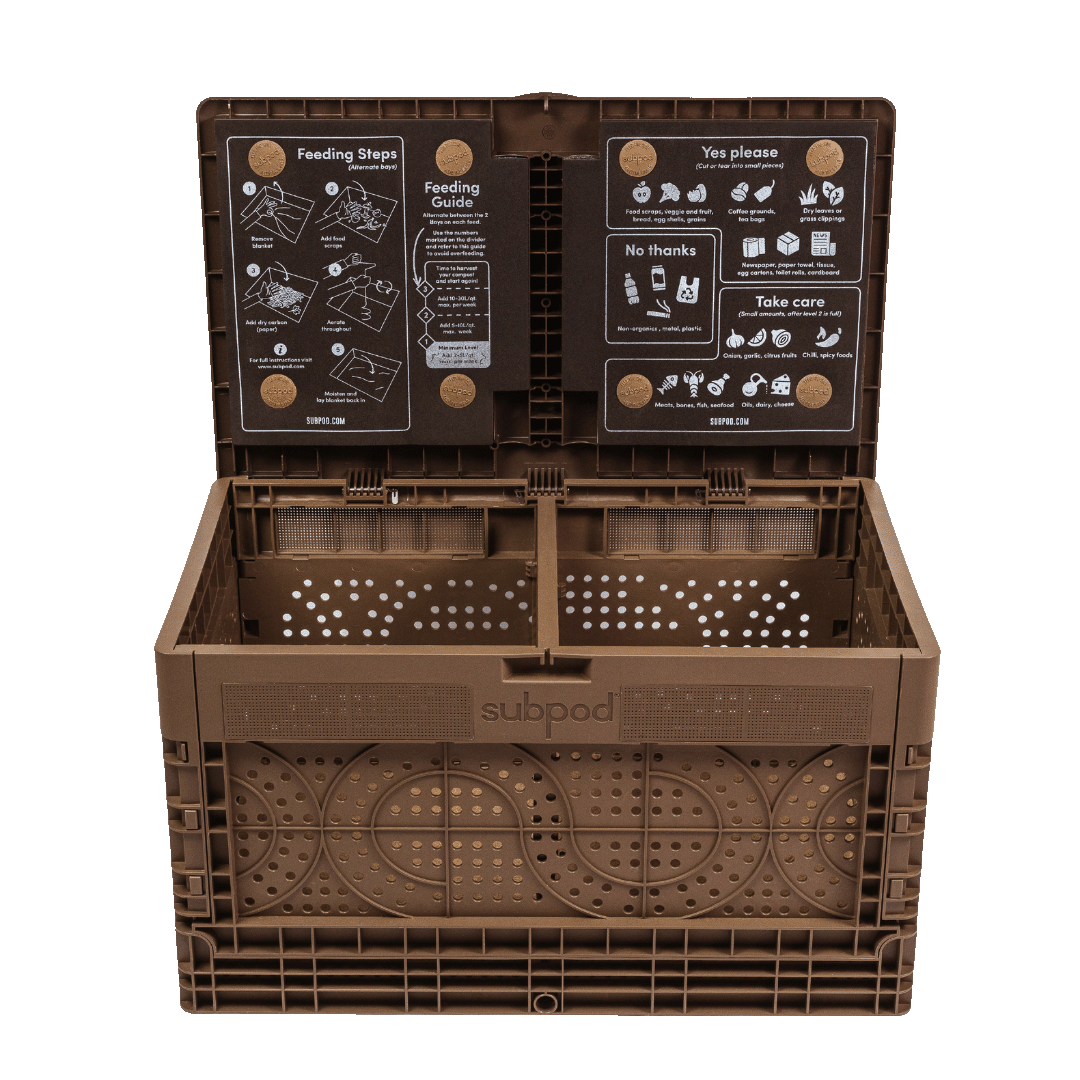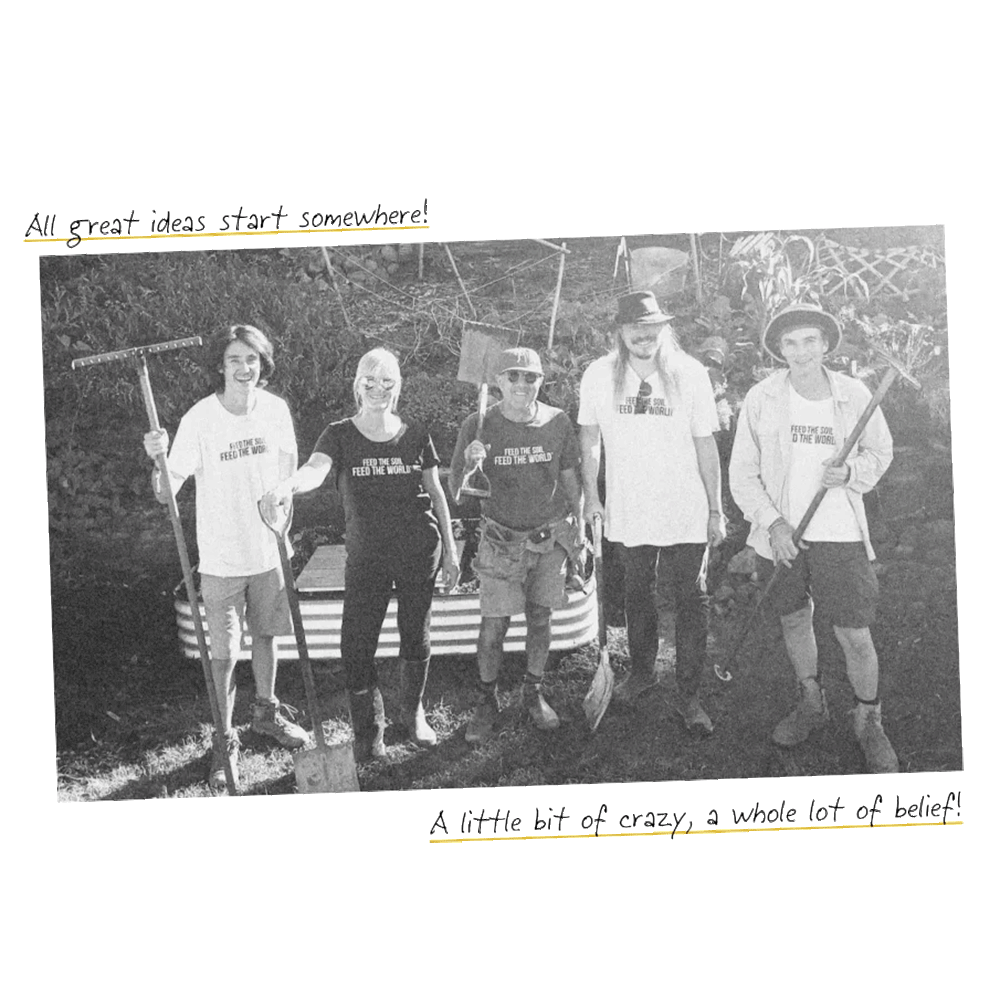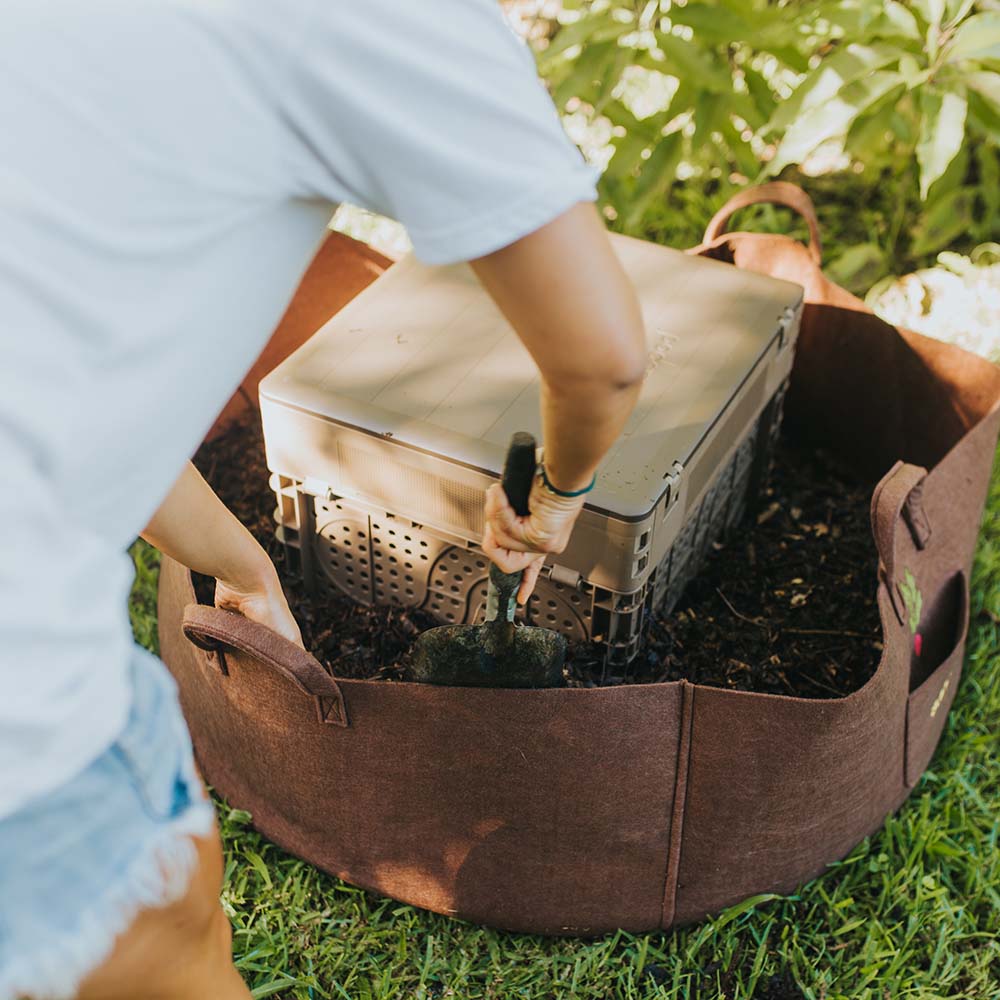Composting has been a gardening tradition for generations – which means there’s generations worth of compost myths out there! All these misconceptions can keep people from getting started, so we’re busting the 10 most common myths we see day to day.
1. Composting is too complicated
Nope! Organic materials composted just fine on their own for thousands of years before we got involved. Your food waste wants to break down, that’s its job! Composting just guides the natural process of decomposition in a more efficient way.
If you can put two handfuls of food waste and shredded paper into a Subpod, you can compost.
2. It takes too long
How long it takes your compost to finish depends on how well you maintain your system. We said above that composting can be as easy as adding a few handfuls of food and paper into a Subpod, and that’s true!
But if you put in a little extra love and keep your system well-balanced, it’ll be much more efficient. Composting is fuelled by microbial activity, so the more microbes your system supports, the faster it works. A well maintained Subpod Classic can compost 44lbs of food waste a week – twice the amount of waste the average household produces!
3. It’s too smelly
A good rule of thumb for compost is that if you can smell it, something’s wrong. Old school compost bins and tumblers are easy breeding grounds for aerobic microbes, which create foul smelling gases and sludgy compost.
To avoid your compost going aerobic, keep your system well-balanced with the right levels of food scraps, carbon (like paper or dry leaves), moisture and oxygen! Choosing an aerobic system like Subpod can also make this process much easier.
Read this article to learn more about getting the right balance with your compost
4. Compost attracts rodents
This is the number one concern for new composters, but compost will only really attract rodents if they can smell it! Compost heaps often draw attention from vermin because the food waste is out in the open.
Because Subpod sits underground, your scraps are buried and harder for vermin to reach. It’s also an odourless aerobic system, so rodents won’t be tempted to explore your garden like they might with an open compost heap.
5. Collecting kitchen scraps is messy
We already have different bins for our recycling and general waste, does adding another bin really make much of a difference? We think sending food waste to landfill where it will pollute our atmosphere is much messier in the long run.
There's heaps of attractive kitchen caddies to choose from that can make collecting your scraps simple and stylish. You can even purchase reusable silicone bin liners that are easy to clean and make composting your scraps a snap!
6. You need a lot of space
Have you got room in your garden to put a suitcase on the ground? Then you can compost!
Subpod Mini is our compact compost system, specifically designed for small spaces. It can fit in a garden bed as small as 35.4” L x 35.4” W x 16.9” H – which is just a touch bigger than a large, well packed travel suitcase.
7. Aerating hurts compost worms
It’s heartwarming that people are worried about hurting their worms, but have no fear! Aerating is perfectly safe for worms.
When you aerate your compost with our cork-screw shaped tool, it coils the compost and fluffs it up as you pull back up. Any worms that get caught up will slide off the smooth metal, or be dropped back down into the compost. This might disturb them briefly, but luckily, they have pretty short memories!
8. You can’t compost that
There’s a long list of foods that supposedly can’t be composted. The truth is, almost any food can be composted if it’s treated the right way! Here are our tips for some of the trickier food types:
Meat, Fish & Dairy
Meats and fatty foods break down much slower than vegetable scraps, and these are the foods most likely to attract animals if you have local pests.
Small amounts can be easily composted in a well established Subpod, but bear in mind you might get some rodents visiting if you add them in large quantities to a compost heap.
Onion, Citrus & Chillies
There's no problem with adding these foods to a compost heap! But we’d suggest you don’t add them into standard worm farms, because they create strong gases that worms generally don’t like.
It’s fine to add them into Subpod because your worms can escape into the soil if things get too strong-smelling for them. Microbes will break these foods down, and your worms will return to feed on the microbes once the smells dissipate.
Starchy & Cooked Foods
These are perfectly safe for any type of compost system. In fact, they’ll compost faster in a lot of cases!
9. You need special compost ‘activators’
Commercial compost “activators” usually give a boost of nitrogen to compost heaps (which helps heat a pile up so it composts faster) but they aren’t necessary – and might actually not be good for your system depending on what kind you have.
If activators make you feel more confident you can naturally boost Subpod with biochar, which enhances the microbial diversity in the system. But most of our composters just trust in nature, work things out as they go, and everything turns out just fine.
10. There’s no point if you don’t have a garden
This might be the biggest compost myth of all, and we'd like to say that it’s total rubbish! Composting is one of the easiest ways you can cut your carbon footprint and help reduce the impact of the food waste problem. If just 1% of people living in cities worldwide started composting, it would have the same environmental impact as planting a 3.5 million acre forest.
If that's not enough of an incentive alone, starting a worm farm like Subpod can even help you make a few bucks, since gardeners in your neighbourhood might be willing to pay for a few bags of compost – or even some worms to get their own compost started!
Read this blog to learn more about the positive impact composting has on our planet
Composting is such an easy way to help the planet. We hope that busting these 10 common myths helps you take the leap of diverting your food waste – or makes managing your system just a little easier.
Give composting a go!
Check out our easy to use compost systems.





Leave a comment
This site is protected by hCaptcha and the hCaptcha Privacy Policy and Terms of Service apply.